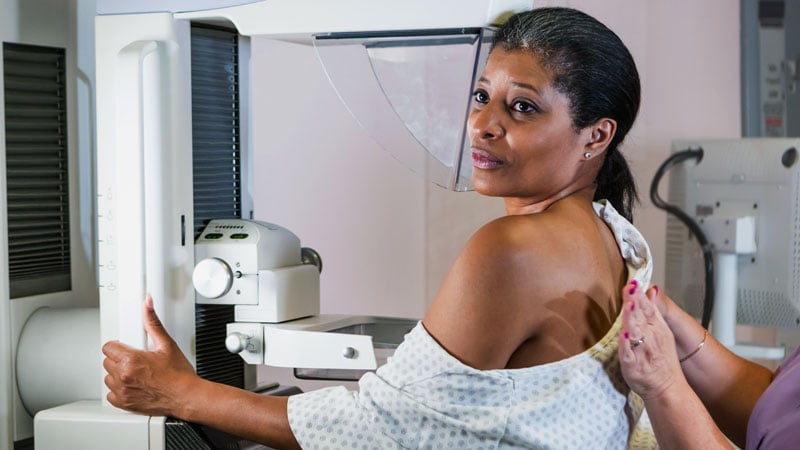AI-Supported Breast Cancer Screening Study Results
Core Concepts
AI-supported breast cancer screening is safe, accurate, and reduces radiologist workload.
Abstract
The content discusses the results of a large, randomized study on AI-supported breast cancer screening, highlighting its safety, accuracy, and impact on radiologist workload. Here is a breakdown of the key points:
Study Results:
AI-supported screening is as accurate as double reading by radiologists.
Reduced radiologist workload by 44%.
20% increase in cancer detection with AI support.
Study Design:
Interim analysis of the MASAI trial in Sweden.
Randomized 80,033 women to AI-supported or standard screening.
Screening Performance:
AI system provided malignancy risk scores.
Detection rate with AI support was 6.1 per 1000 vs 5.1 per 1000 with standard screening.
False positive rates were the same, but PPV of recall was higher with AI.
Future Implications:
Need to understand patient outcomes and cost-effectiveness.
Potential for AI to reduce radiologist workload significantly.
Concerns:
Overdiagnosis and overdetection of indolent lesions with AI.
Expert Opinions:
AI shows potential to reduce radiologist burden.
Caution needed regarding overdiagnosis and overtreatment.
AI-Supported Breast Screens May Reduce Radiologist Workload
Stats
The AI-supported screening reduced radiologist workload by nearly 44%.
Detection rate using AI support vs standard screening was 6.1 per 1000 vs 5.1 per 1000.
False positive rates were the same in both groups (1.5%).
Positive predictive value (PPV) of recall was higher in the AI group: 28.3% vs 24.8%.
The cancer detection rate in the high-risk group was 72.3 per 1000 participants screened.
Quotes
"We found that the benefit of AI-supported screening in terms of screen-reading workload reduction was considerable."
"The results illustrate the potential for artificial intelligence to reduce the burden on radiologists' time."
Key Insights Distilled From
by Sharon Worce... at www.medscape.com 08-02-2023
https://www.medscape.com/viewarticle/995081
Deeper Inquiries
What are the potential long-term implications of overdiagnosis with AI-supported breast cancer screening
Overdiagnosis in AI-supported breast cancer screening can have significant long-term implications. The increased detection of in situ cancers, as seen in the MASAI trial, raises concerns about the potential for unnecessary treatments for low-grade lesions that may never progress to clinically significant disease. This could lead to overtreatment, exposing patients to the risks and side effects of treatments like surgery, radiation, and chemotherapy without clear benefits. Overdiagnosis also places a burden on healthcare systems by increasing healthcare costs and diverting resources away from patients who truly need intervention. Addressing the issue of overdiagnosis in AI-supported breast cancer screening will be crucial to ensuring the effectiveness and sustainability of screening programs.
How can the combination of radiologists' expertise with AI improve the detection of interval cancers
The combination of radiologists' expertise with AI has the potential to improve the detection of interval cancers, which are cancers that develop between regular screening appointments and are often missed by traditional screening methods. By leveraging AI's ability to analyze large amounts of data and identify subtle patterns or abnormalities, radiologists can enhance their diagnostic accuracy and efficiency. AI can assist radiologists in detecting early signs of cancer that may be overlooked on mammograms, leading to earlier diagnosis and treatment. This collaborative approach can help reduce the number of missed cancers, improve patient outcomes, and ultimately save lives by detecting cancer at its earliest and most treatable stages.
How might the use of AI impact the accessibility and affordability of breast cancer screening programs globally
The use of AI in breast cancer screening has the potential to impact the accessibility and affordability of screening programs globally in several ways. Firstly, AI can help address the shortage of radiologists in many regions by reducing their workload and increasing efficiency, allowing for more screenings to be conducted in a shorter amount of time. This can lead to shorter wait times for screening appointments and faster diagnosis for patients. Secondly, AI has the potential to standardize and streamline the screening process, making it more cost-effective and scalable. By automating certain tasks and providing decision support to radiologists, AI can help lower the overall cost of screening programs, making them more accessible to underserved populations. Additionally, AI can improve the accuracy of screenings, reducing the need for unnecessary follow-up tests and interventions, which can further lower costs and improve the overall efficiency of screening programs. Overall, the integration of AI into breast cancer screening has the potential to make screenings more accessible, affordable, and effective on a global scale.
0
More on Healthcare
